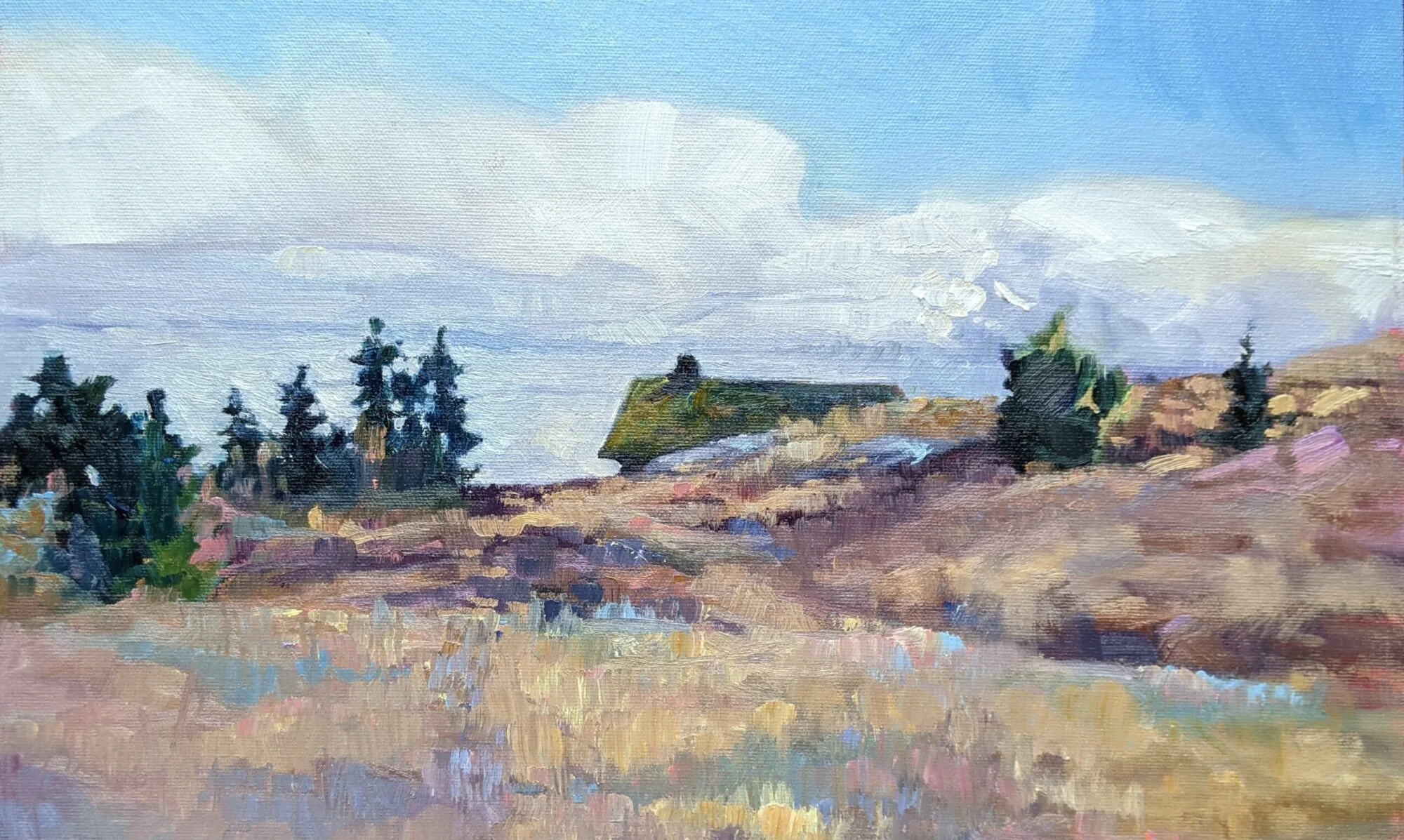Usually, when we say “field sketch,” people think of pastorals, but the term can apply equally to urban landscapes. I went on a tear painting the Queensboro (or
Just as urban plein air painters complain about the “endless green” of the woods, pastoral painters are overwhelmed by the grey of the city. But just as there are many different greens, there are many different greys. The trick is to find them, and to find the accidental notes in either landscape.
How do you avoid dreary, dull greys? First, avoid using black as a base. I was taught that this was because of the large grains in carbon-based blacks, which may or may not be true. But for whatever reason, black has a way of making cool colors look muddy and warm colors look more opaque, and that’s a bad basis for greys.
Under the Queensboro Bridge, oil on canvasboard, 12X16
I normally paint foliage using a matrix of nine mixed greens plus one from a tube (chromium oxide). There are at least that many greys present in the urban landscape. I prefer to mix them not in matrices, but in threads, so that every permutation is easily available.
Some of my favorite grey threads, from left to right:
Cadmium orange and Prussian blue;
Raw sienna and Prussian blue;
Yellow ochre and quinacridone violet;
Burnt sienna and ultramarine blue.
Remember, every manufacturer’s paint handles somewhat differently, and unless you’re using RGH paint, you’re unlikely to duplicate my results exactly. But the principle is simple: just choose two colors from opposite sides of the color wheel and add white.
In addition, I think it’s very helpful to use a warm-toned canvas or canvas board.




